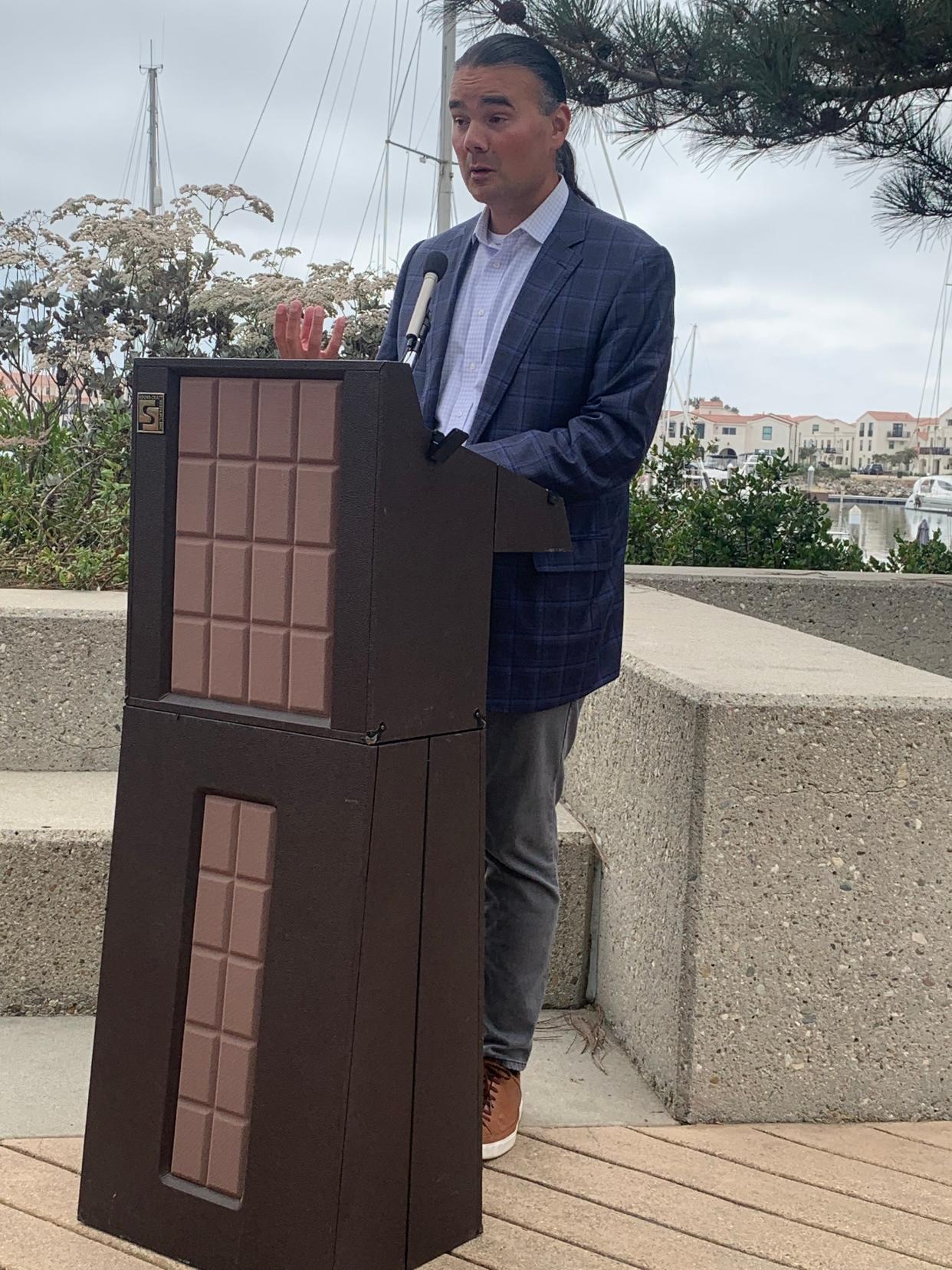Tribes urge lawmakers to reverse Oklahoma victory on jurisdiction

Tribal leaders, key members of Congress and a top Biden administration official said Tuesday that legislation may be necessary to clarify state, tribal and federal jurisdiction on Indian reservations in the wake of a recent U.S. Supreme Court decision in an Oklahoma case.
Bryan Newland, the assistant secretary for Indian Affairs at the Interior Department, said tribes around the country have expressed confusion and concerns about conflicts over jurisdiction since the high court’s ruling in June that the state of Oklahoma can prosecute non-Native Americans accused of crimes against Native Americans on tribal reservations.
The Interior and Justice departments have scheduled listening sessions with tribal leaders next week about how to respond to the decision in the Oklahoma v. Castro-Huerta case, he said.
“Before I go so far as to recommend a path forward, I want to make sure we get feedback from Indian country,” Newland said.
Congress has acted consistently for years to clarify and strengthen tribal jurisdiction inside reservation boundaries, he said. It would be in keeping with that trend for Congress to ensure tribes have the power to provide consent when other governments act within those boundaries, Newland said.
Newland’s remarks came at a hearing of the House Natural Resources subcommittee on Indigenous Peoples of the United States. The hearing focused on the implications of the Castro-Huerta decision, which was a victory for the Oklahoma attorney general’s office but considered a blow to tribal sovereignty and a major step back from the high court’s decision just two years earlier in McGirt v. Oklahoma.
More:Tulsa keeps ticketing Native Americans. A federal appeal raises new questions
Rep. Teresa Leger Fernandez, D-New Mexico, the chair of the subcommittee, said the Castro-Huerta decision upended generations of Native American law and “understandably sent shockwaves across Indian country and in the legal community, which understood its potential vast implications.”
Fernandez said she was not ready to advocate for a specific legislative proposal before learning more about the various impacts, including, potentially, in civil matters.
Rep. Jay Obernolte, of California, the top Republican on the subcommittee, said the legal chaos created by the decisions in McGirt v. Oklahoma and in the Castro-Huerta case was the result of Congress’ failure to state its intentions clearly.
“I’m hopeful that this can perhaps catalyze Congress to be explicit of what its intentions are towards the prosecution of crimes in Indian country and explicit about what the boundaries of reservations are, which could have avoided the chaos of McGirt,” he said.
The Supreme Court ruled in 2020, in the McGirt case, that Congress had never explicitly disestablished the Muscogee (Creek) reservation before Oklahoma became a state in 1907. Because of that, the court said, convicted child rapist Jimcy McGirt was wrongly tried in state court because he is Native American and the crimes occurred on the reservation.
The Oklahoma Court of Criminal Appeals extended the McGirt decision to the Cherokee, Chickasaw, Choctaw, Quapaw and Seminole reservations, shifting criminal jurisdiction to the federal government and tribal courts in all cases involving Native Americans in most of eastern Oklahoma.
More:First Americans Museum celebrates first anniversary with big attendance and bigger plans
The state contended in the case of Victor Manuel Castro-Huerta, a Mexican national convicted of child neglect against a Native American within the Cherokee reservation, that it shared jurisdiction with the federal government in criminal cases on reservations when the accused is not Native American.
The Supreme Court agreed, ruling that Congress never explicitly barred states from exercising criminal jurisdiction in such cases.
Mithun Mansinghani, the former solicitor general of Oklahoma, who led the state’s effort in the Castro-Huerta case, testified Tuesday that the Supreme Court’s ruling “is, first and foremost, a ruling about state sovereignty. It says that state borders matter and that state sovereignty matters.”
Mansinghani, now in private practice in Oklahoma City, said the ruling did not affect tribal jurisdiction and instead offered dual protection to Native Americans who are victims of crimes by non-Native Americans because, now, the state and federal governments can prosecute those crimes.
Tribal leaders, district attorney disagree on what should happen post-Castro-Huerta
Tribal courts generally can’t prosecute non-Native Americans, except for offenses specified in the Violence Against Women Act. Also, prison sentences meted out in tribal courts cannot exceed three years, so the most severe crimes committed on reservations are handled by U.S. attorneys.
Sara Hill, attorney general for the Cherokee Nation, said the Castro-Huerta decision did not affect tribal jurisdiction. But she testified that it represents a real threat to tribal sovereignty.

“The Court flipped the script on state jurisdiction in Indian country,” Hill said. “No longer did states lack jurisdiction unless Congress authorized it. Now, states have jurisdiction unless Congress has specifically preempted it.
“And the list of considerations and sources of federal law that fail to preempt state law is extraordinarily long, according to the Castro-Huerta majority. Nothing preempts state jurisdiction: not the clear language from the General Crimes Act, not Public Law 280, ‘no principle of tribal self-government,’ none of the treaties between the Cherokee Nation and the United States, and not the Oklahoma Enabling Act.”
However, Hill said it would be important to move cautiously and be mindful of what legal challenges could be brought against any legislation intended to address the Castro-Huerta decision.
Jonodev Chaudhuri, ambassador of the Muscogee (Creek) Nation, disagreed. He told the subcommittee that immediate action should be taken.
“The solution to the problems created by Castro-Huerta is not to study a problem we already understand,” he said. “It is not another commission. The solution is restoration of tribal jurisdiction and authority, full stop.”
Leaders of tribes in South Dakota, Massachusetts, Michigan and Washington also testified that Congress should take quick action to address the Castro-Huerta decision.
“Congress must recognize the Court’s failure in Castro-Huerta and respond swiftly and conclusively, as it has the authority to safeguard against the severe injustices and negative ramifications created by this decision and the mountains of hardship and litigation that it will cause,” Kevin Killer, president of the Oglala Sioux Tribe in South Dakota, said in written testimony.
Matt Ballard, district attorney for Craig, Mayes and Rogers counties, in eastern Oklahoma, offered a contrasting view. He testified Tuesday that hundreds of cases were dismissed in his region after the McGirt decision in 2020 as the state lost jurisdiction over crimes involving Native Americans.
Ballard recounted cases that he said were examples of Native American victims denied justice in Oklahoma because of the McGirt decision. One such victim called him the day the Castro-Huerta decision was released and asked if her case could be refiled. He told her it could, he said, and he refiled the case.
Ballard said he was grateful to testify “to give voice today to the Native American victims who have been given hope" as a result of the Castro-Huerta decision.
This article originally appeared on Oklahoman: Tribes urge Congress to reverse Castro-Huerta ruling for Oklahoma

